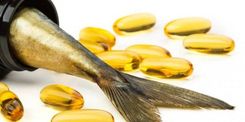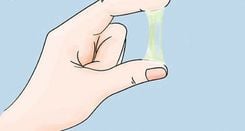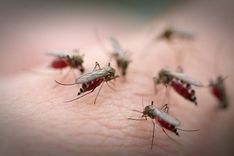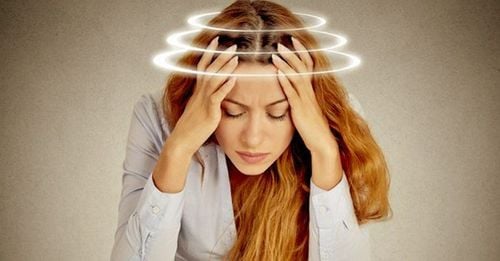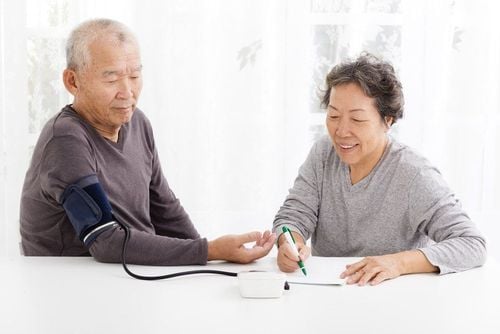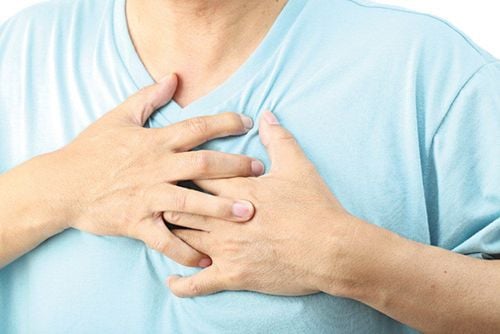The article is professionally advised by Dr. Nguyen Quoc Viet, Specialist II - Department of Medicine Examination & Internal Medicine, Vinmec Da Nang International Hospital.
Diet plays an important role in the treatment of low blood pressure. Poor eating habits can worsen the symptoms of low blood pressure. On the other hand, a proper nutrition plan can help individuals with low blood pressure improve their blood pressure results as desired.
1. What is low blood pressure?
Blood pressure is represented by two readings. The first number, which is usually higher, is systolic pressure, or the pressure in the arteries when the heart beats and fills with blood. The second number is diastolic pressure, or the pressure in the arteries when the heart is at rest between beats.
In a healthy person, the normal blood pressure reading is 120/80 mmHg. Low blood pressure is defined as a sudden drop in blood pressure below 90/60 mmHg. Low blood pressure can reduce blood volume due to vasoconstriction.
There are two types of low blood pressure: primary hypotension and secondary hypotension.
- Primary hypotension: This occurs in individuals with a special constitution, where blood pressure remains low from childhood to adulthood without any symptoms or complications.
- Secondary hypotension: This refers to a situation where blood pressure is initially normal but then gradually drops to the level considered as low blood pressure.
2. Diet for people with low blood pressure
Low blood pressure is often seen in individuals who eat too little, skip meals, or have large gaps between meals, leading to a decrease in blood sugar levels. This habit reduces the elasticity and flexibility of blood vessels, resulting in a drop in blood pressure.
Diet plays a crucial role in managing low blood pressure and maintaining normal blood pressure levels. Therefore, when creating a diet plan, individuals with low blood pressure should know what to drink, what to eat, and, most importantly, what to avoid in order to prevent worsening their health condition.

3. What should people with low blood pressure avoid eating?
- Rose apple: While beneficial for people with high blood pressure, this fruit is not recommended for those with low blood pressure.
- Roasted chestnuts, royal jelly: Both of these foods can lower blood pressure, so individuals with low blood pressure should avoid them.
- Carrots: Contain succinic acid, which can increase potassium in urine and lower blood pressure, so it’s best not to consume them in large quantities.
- Tomatoes and bitter melon: Both have blood pressure-lowering effects and can make low blood pressure worse. Eating too many tomatoes can lead to symptoms such as headaches, dizziness, and vertigo for people with low blood pressure.
- Cold foods like spinach, celery, cucumbers, watermelon, red beans, green beans, sunflower seeds, seaweed, and onions can lower blood pressure, so it's better to avoid them.
- Alcohol and beer: While beer may temporarily raise blood pressure due to its effect on heart rate, it can lead to dehydration and cause blood vessels to dilate, ultimately causing blood pressure to drop significantly.
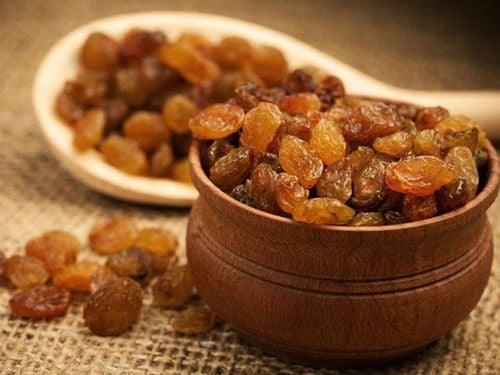
4. What should people with low blood pressure eat?
- Raisins: Known as an excellent natural remedy for low blood pressure, raisins help maintain blood pressure by supporting adrenal gland functions. They are best consumed in the morning on an empty stomach.
- Licorice root: This helps normalize low blood pressure caused by low cortisol levels in the blood.
- Salt-containing sodium: A small amount of salt added to water can help raise blood pressure, but it should not be overused.
- Lemon Water: If dehydration causes low blood pressure, drinking lemon water can help improve the condition. Antioxidants in lemons help regulate blood circulation and maintain stable blood pressure.
- Almonds: Soak 4–5 almonds overnight, peel their skins, grind them into a paste, and mix with a glass of warm milk to drink in the morning to help improve blood pressure.
- Caffeine-rich foods: Found in beverages like coffee, cola, hot chocolate, and strong tea, caffeine temporarily raises blood pressure.
- Iron-rich foods: For those with low blood pressure caused by anemia, they should eat foods like pork liver, milk, shrimp, fish, eggs, lean meats, legumes, sweet potatoes, spinach, nalta jute, and pomegranates.
Doctors also advise people with low blood pressure to drink at least 2 liters of water daily to increase blood volume and prevent dehydration. Avoid overeating by dividing meals into smaller portions throughout the day. Don’t stay up late, get 7–8 hours of sleep each night, and avoid using high pillows. Refrain from going out during extreme heat and maintain light physical activities like walking.
If low blood pressure becomes unpredictable and cannot be managed through lifestyle changes, it is important to visit the hospital for proper examination and advice.
Vinmec International Hospital currently offers Cardiovascular Screening Packages, which include blood pressure monitoring and assessment using the most advanced and modern methods.
Please dial HOTLINE for more information or register for an appointment HERE. Download MyVinmec app to make appointments faster and to manage your bookings easily.



